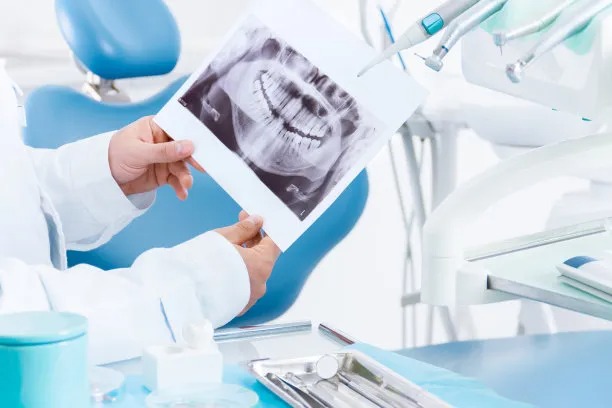Summary: Periodontal disease is a condition that extends far beyond the confines of oral health, impacting overall health and wellbeing in adults. This article delves into the multifaceted implications of periodontal disease, exploring its connection to systemic health issues, its emotional and psychological effects, and practical prevention strategies. By understanding these aspects, individuals can better manage their oral health and reduce the risk of further complications. We will examine the importance of regular dental check-ups, proper oral hygiene, and dietary habits in combating periodontal disease, thus promoting a holistic wellness approach to health.
1. Effects on Systemic Health and Conditions

Periodontal disease has been closely linked to a variety of systemic health issues, making its impacts more extensive than many may realize. Chronic inflammation due to periodontal infection can exacerbate conditions such as diabetes, cardiovascular diseases, and respiratory problems. Individuals with diabetes are particularly vulnerable, as periodontal infections can lead to increased insulin resistance, making glucose control more challenging.
Research also suggests that periodontal disease can contribute to cardiovascular diseases. The bacteria present in inflamed gums may enter the bloodstream, potentially leading to heart disease and stroke. Inflammation in the mouth can exacerbate systemic inflammation, fueling conditions that compromise heart health.
Moreover, periodontal disease can affect respiratory health. In patients with existing lung conditions, inhaling bacteria from infected gums can lead to respiratory infections or worsen chronic obstructive pulmonary disease (COPD). Understanding these connections underscores the importance of maintaining good oral health as a preventive measure for overall health.
2. Emotional and Psychological Impact
Beyond physical health, periodontal disease can significantly affect emotional wellbeing and mental health. Common symptoms, such as bad breath, gum bleeding, and tooth loss, often lead to embarrassment and social withdrawal. Individuals suffering from periodontal disease may experience anxiety about their appearance and health, adversely impacting their quality of life.
Furthermore, research has shown a correlation between oral health and depression. The discomfort and self-consciousness that accompany poor oral health can lower self-esteem and trigger feelings of helplessness. This cyclical relationship between periodontal disease and mental health highlights the necessity for holistic approaches to treatment and care.
Addressing the emotional aspects of periodontal disease is crucial. Seeking support from healthcare providers and mental health professionals can provide patients with resources to cope with these challenges, emphasizing the interconnected nature of physical and mental wellness.
3. Importance of Prevention Strategies
Preventing periodontal disease is essential for safeguarding both oral health and overall wellbeing. One of the most effective strategies is maintaining a rigorous oral hygiene routine that includes regular brushing and flossing. Adopting these habits can help eliminate plaque before it hardens into tartar, which can lead to gum disease.
Regular dental check-ups are also crucial in preventing periodontal issues. Dentists can detect early signs of gum disease and recommend prompt treatment to avoid further complications. Adults should aim for biannual dental visits to ensure their oral health is monitored effectively.
A balanced diet rich in nutrients plays a significant role in preventing periodontal disease as well. Foods high in vitamins C and D, along with calcium, support healthy gums and overall oral hygiene. Staying hydrated and limiting sugary snacks can further reduce the risk of gum disease by promoting better saliva flow and healthier teeth.
4. The Role of Education and Awareness
Education and awareness are fundamental in addressing periodontal disease and its wider implications for health. Many individuals remain unaware of the extensive links between oral health and overall wellbeing, emphasizing the necessity for broader public health initiatives aimed at enhancing knowledge about periodontal disease.
Community programs that promote oral health education can empower individuals with the knowledge they need to take preventive actions. Workshops, seminars, and online resources can all play a part in raising awareness regarding the risks of periodontal disease and the importance of good oral hygiene practices.
Additionally, health professionals should be encouraged to discuss oral health during regular medical appointments to reinforce its significance as a component of overall health. By fostering an environment of awareness and education, we can mitigate the impacts of periodontal disease and promote better health outcomes for everyone.
Summary:
Understanding the intricate relationship between periodontal disease and overall health highlights the importance of proactive dental care and comprehensive health strategies. By recognizing the systemic implications, emotional impacts, effective prevention methods, and the necessity for education, individuals can adopt a more holistic approach to their well-being.
This article is compiled by Vickong Dental and the content is for reference only.
Vickong Dental
Vickong Dental is a large medical group established in Hong Kong in 2008 by professors from well-known medical universities in Guangdong and Hong Kong, as well as medical doctors from key national '985' universities (including Master's supervisors and senior professors). The chain of branches brings together expert dentists with PhDs and Master's degrees from Hong Kong and Mainland China, committed to providing high-quality dental treatment.
"Vickong Dental Practices the University Motto of 'Healing and Serving Society,' with a Stable Operation for Sixteen Years. It Has Been honored with Hong Kong Enterprise Leaders's Choice,' and is a Global Trusted Implant Center for the Nobel Implant System. Recommended by Hong Kong Metro Broadcast and Guangdong Television, it Serves Customers from Over Thirty Countries and Regions, Gaining the Trust and Favor of Citizens from the Guangdong-Hong Kong-Macau Greater Bay Area and Surrounding Cities.

Thousands of customers' unanimous praise
The most recognized and highly recommended dental service by customers in the Guangdong-Hong Kong-Macau Greater Bay Area
We Ensure You Receive Detailed Care and Attention Here
Hong Kong standards, Shenzhen prices, Your Trusted English-speaking dentists

Vickong Dental Medical-Grade Instrument Disinfection Process
Vickong Dental Medical-Grade Instrument Disinfection Process

Vickong Dental Chain: A Warm and Comfortable Environment for Treatment






Appointment Hours

Q&A
Why choose Vickong Dental?
Vickong Dental practices the university motto 「Medicine to Benefit Society」, with each branch bringing together highly qualified dentists with doctoral and master’s degrees from Hong Kong and the Mainland, and has maintained seventeen years of steady operation。Recipient of 「2024 Hong Kong Enterprise Leaders Brand」, 「2025 Hong Kong Enterprise Leaders Brand」, a Nobel Biocare Global Trusted Implant Center, and a brand recommended by Metro Radio Hong Kong and Guangdong TV。
To date, we have served customers from more than thirty countries and regions,earning exceptionally high word-of-mouth recognition and trusted recommendations from residents across the Guangdong-Hong Kong-Macao Greater Bay Area and surrounding cities
We have eight major branches in Zhuhai、Shenzhen,and a consultation and service assurance center in Hong Kong,so you can book a free consultation at any time for any questions,which is very reassuring.
If I do not accept the quotation after the CT scan, will I be charged??
No! As long as the actual treatment has not started, you will not be charged any fees.
Will there be any additional charges during the treatment process?
No, there won’t be any additional charges. Before treatment begins, we will clearly explain the treatment plan and its corresponding fees. Only after the patient agrees and signs the consent form will we proceed with the dental service.
Can I pay in Hong Kong dollars?
Yes. Vickong Dental accepts payment in Hong Kong dollars. The amount will be converted based on the exchange rate of the day, and the applicable rate will be clearly communicated to you in advance.
Can I reschedule my appointment at any time?
Yes. Please contact us via **WeChat** or **WhatsApp** as early as possible, providing your original appointment time and details, along with your preferred new date and time slot for rescheduling.













